Between 1964 and 1979 Manfred Mann scored three British Number One hits ? plus two more Number One hits in America plus another seven that went Top 5 and six more that made the Top 10. In the Sixties Manfred popularised the songs of Bob Dylan with interpretations of "Just like a Woman" and "Mighty Quinn". In the Seventies he did the same for Bruce Springsteen with versions of "Blinded by the Light" and "For You".
Over this period Manfred Mann's bands featured some of the finest singers on the British pop and rock scene: Paul Jones, Mike D'Abo, Mick Rogers and Chris Thompson, all of whom have gone on to enjoy successful and varied solo careers. Their distinctive voices have all added to the rich variety of Manfred Mann's classic hits.
South African-born Manfred Mann arrived in Britain in 1961. He was already an accomplished jazz pianist and quickly established himself on the London club circuit with drummer Mike Hug with whom he formed the Mann Hug Blues Band. In 1963 the band was re-christened Manfred Mann and with a line-up featuring Paul Jones on vocals and harmonica, Mike Vickers on guitar, flute and saxophone, Tom McGuiness on bass and Hug they set their sights on the British pop scene which was about to explode.
They may have been a musically well-educated band but there was nothing sophisticated about Manfred Mann's first hit the rowdy, frenetic "5-4-3-2-1" that they wrote for the theme song of the groundbreaking TV pop show Ready Steady Go! Boosted by its weekly exposure on the programme the single reached Number 5 early in 1964.
Manfred Mann had their first Number One in the summer of that year with "Do Wah Diddy Diddy Diddy", written by the famous New York Brill Building song writing duo of Ellie Greenwich and Jeff Barry. They also found themselves in the vanguard of the British pop invasion of America alongside the Beatles and the Animals (and ahead of the Rolling Stones) as the song shot to the top of the US charts.
The band then proceeded to apply their sharp musical talents to other suitable pop songs such as "Sha La La" (an American hit for the Shirelles), the poignant "Come Tomorrow" and "Oh No Not My Baby" (written by another famous Brill Building duo, Carole King and Gerry Goffin) before turning their attention to Bob Dylan's "If You Gotta Go, Go Now" that was a Number 2 hit in the UK and earned the approval of Dylan himself.
In April 1966 Manfred Mann notched up their second British Number One with the gorgeous, melodic "Pretty Flamingo". Surprisingly it only scraped into the American Top 30 but it left a lasting impression on a teenage Bruce Springsteen who regularly played it live during the early part of his career. Manfred would return the favour...
"Pretty Flamingo" was the crowning glory for the first incarnation of Manfred Mann, not least for the personality-driven voice of Paul Jones who decided to bow out on a high note. He launched a solo career and starred in the movie Privilege ? playing a rock star ? before becoming one of Britain's leading experts and commentators on the blues and R&B.
His departure put the group's future in jeopardy but his replacement, the unknown public schoolboy Mike D'Abo immediately stamped his own character on the band and the hits flowed seamlessly on ? Dylan's "Just Like A Woman", the quirky "Semi-Detached Suburban Mr Jones" and "Ha! Ha! Said The Clown" ? before racking up their third UK Number One early in 1968 with Dylan's "Mighty Quinn", an anthemic masterpiece that astonishingly Dylan never released himself.
As the Sixties drew to a close Manfred and Mike Hugg decided to explore new musical directions and after more Top Ten hits with "My Name Is Jack", "Fox On The Run" and "Ragamuffin Man", they disbanded Manfred Mann. The other members soon found new careers in other bands (Tom McGuiness formed McGuinness Flint) or in production.
Manfred and Mike Hugg meanwhile embarked on a brief "anti-pop" career with the self-explanatory "Chapter Three", a jazz-rock ensemble complete with a five-piece brass section. that was wilfully uncommercial but musically rewarding. After two albums Mike Hugg decided to pursue a career composing soundtracks which notably included "Up The Junction".
A revived Manfred re-entered the commercial fray once more with Manfred Mann's Earth Band, a powerful progressive rock group formed in 1971 featuring singer/guitarist Mick Rogers, bassist Colin Pattenden and drummer Chris Slade.
They toured Europe and America extensively, building up their reputation via albums and gigs before breaking into the British Top Ten in 1973 with "Joybringer", a song that was based on one of the tunes from composer Gustav Holst's suite, The Planets.
Shortly before Mick Rogers left Manfred Mann's Earth Band in 1976 they scored a minor hit with a cover of Bruce Springsteen's "Spirit In The Night" taken from his little known debut album. With new singer Chris Thompson on board Manfred took another song from Springsteen's first album, "Blinded By The Light", that rocketed to the top of the American charts in February 1977 (ironically Springsteen's own single version had flopped dismally).
"Blinded By The Light" also reached Number 6 in the UK and the career of Manfred Mann's Earth Band's took off, boosted by a succession of great albums like "The Roaring Silence", "Watch" and "Angel Station" and magnificent covers of "For You" (Springsteen again), "You Angel You" (Dylan again), "Demolition Man" (Sting) and "Redemption Song" (Bob Marley).
The line-up of Manfred Mann's Earth Band has always been a restless one but Manfred's penchant for spotting little known songs and giving them a whole new lease of life has continued to pay dividends, most notably with "Davey's On The Road Again" (Top Ten in 1978) "Don't Kill It Carol", "Lies" (Through The 80s), "Father Of Day, Father Of Night" and "Questions".
Key members of the 60s Manfred Mann line-ups ? Paul Jones, Mike D'Abo and Tom McGuinness ? have banded together and perform as The Manfreds. Such is the enduring legacy of Manfred Mann over the past 40 years.
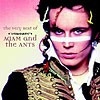
 - Booklet-1-square-100x100.jpg)
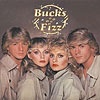
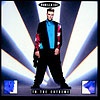
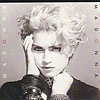

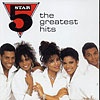


Do You Remember Manfred Mann's Earth Band?
Do You Remember Manfred Mann's Earth Band?